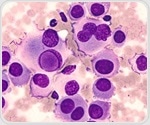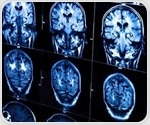| |  Stress does no one - not even your insulin-producing cells - any good. Stress does no one - not even your insulin-producing cells - any good. | |
|
| |  Cells depend on the precise reading of DNA sequences to function correctly. This process, known as gene expression, determines which genetic instructions are activated. Cells depend on the precise reading of DNA sequences to function correctly. This process, known as gene expression, determines which genetic instructions are activated. | |
|
| |  A landmark study by WEHI scientists has shed new light on one of the most fundamental mysteries of biology: how cells divide and grow into the complex structures that make up our bodies. A landmark study by WEHI scientists has shed new light on one of the most fundamental mysteries of biology: how cells divide and grow into the complex structures that make up our bodies. | |
|
| |  Chronic myeloid leukemia (CML) is a hematopoietic malignancy characterized by BCR-ABL1 gene fusion. Chronic myeloid leukemia (CML) is a hematopoietic malignancy characterized by BCR-ABL1 gene fusion. | |
|
| |  Weight-loss drugs have surged in popularity, promising rapid results with regular injections. Now, researchers from Japan report a way for the body to make its own weight-loss drugs, doing away with injections in favor of a one-time treatment. Weight-loss drugs have surged in popularity, promising rapid results with regular injections. Now, researchers from Japan report a way for the body to make its own weight-loss drugs, doing away with injections in favor of a one-time treatment. | |
|
| |  Genes, fragments of DNA located on our chromosomes, control much of what happens in cells. Genes, fragments of DNA located on our chromosomes, control much of what happens in cells. | |
|
| |  In a multi-institutional study published in Science Direct, researchers revealed that testing urine-based tumor DNA (utDNA) can help predict which bladder cancer patients are at higher risk for recurrence after treatment. In a multi-institutional study published in Science Direct, researchers revealed that testing urine-based tumor DNA (utDNA) can help predict which bladder cancer patients are at higher risk for recurrence after treatment. | |
|
| |  Gene therapy can improve hearing in children and adults with congenital deafness or severe hearing impairment, a new study involving researchers at Karolinska Institutet reports. Gene therapy can improve hearing in children and adults with congenital deafness or severe hearing impairment, a new study involving researchers at Karolinska Institutet reports. | |
|
| |  Fourteen million people worldwide suffer from enlarged hearts, or hypertrophic cardiomyopathy (HCM), a genetic disease that thickens the heart's walls, making it harder for the organ to pump blood - but many of them don't know it. Fourteen million people worldwide suffer from enlarged hearts, or hypertrophic cardiomyopathy (HCM), a genetic disease that thickens the heart's walls, making it harder for the organ to pump blood - but many of them don't know it. | |
|
| |  In a step toward treating mitochondrial diseases, researchers in the Netherlands have successfully edited harmful mutations in mitochondrial DNA using a genetic tool known as a base editor. In a step toward treating mitochondrial diseases, researchers in the Netherlands have successfully edited harmful mutations in mitochondrial DNA using a genetic tool known as a base editor. | |
|
| |  With around 5,000 different ethno-linguistic and religious groups, India is one of the most culturally and genetically diverse countries in the world. With around 5,000 different ethno-linguistic and religious groups, India is one of the most culturally and genetically diverse countries in the world. | |
|
| |  Florida Atlantic University researchers have secured two key grants to investigate targeting a gene for the first time as a new approach to treat glioblastoma, a very aggressive and fast-growing type of brain cancer. Florida Atlantic University researchers have secured two key grants to investigate targeting a gene for the first time as a new approach to treat glioblastoma, a very aggressive and fast-growing type of brain cancer. | |
|
| |  Using gene editing in a preclinical model, researchers at UT Southwestern Medical Center blocked the symptoms of a rare smooth muscle disease before they developed. Using gene editing in a preclinical model, researchers at UT Southwestern Medical Center blocked the symptoms of a rare smooth muscle disease before they developed. | |
|
| |  A new Cornell University study brings additional clarity to the relationship between Type 2 diabetes and genes that express a salivary enzyme that breaks down starch. A new Cornell University study brings additional clarity to the relationship between Type 2 diabetes and genes that express a salivary enzyme that breaks down starch. | |
|
| |  In a comprehensive Genomic Press Interview published in Brain Medicine, Dr. Michael C. Oldham shares his unconventional journey from advertising executive to computational neuroscientist and his groundbreaking contributions to understanding the human brain's cellular and molecular architecture through gene coexpression analysis. In a comprehensive Genomic Press Interview published in Brain Medicine, Dr. Michael C. Oldham shares his unconventional journey from advertising executive to computational neuroscientist and his groundbreaking contributions to understanding the human brain's cellular and molecular architecture through gene coexpression analysis. | |